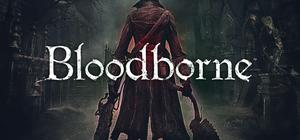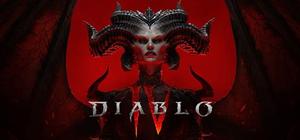The Soul of the Series: Yoshida on the Future of Final Fantasy's Combat
In the grand, ever-evolving narrative of the Final Fantasy series, few topics ignite as much passionate debate as the combat system. It's the mechanical heart of the experience, the language through which players interact with its world. Now, series producer Naoki Yoshida has waded back into the fray, confirming that the internal discussion at Square Enix about the franchise's direction-be it a return to its turn-based roots or a continued push into action-is as undecided as ever.
Speaking in a recent interview, Yoshida addressed the million-gil question: what will combat look like in the eventual Final Fantasy 17? His response was a masterclass in high-level producer-speak, stating there is “not a clear-cut answer”. While that might sound like a dodge, it’s an honest reflection of a series at a creative crossroads, a place it’s been many times before.
The Director's Chair Dictates the Battle
Yoshida was quick to emphasize that the ultimate decision isn't his to make alone. He stressed that the choice of combat style is intrinsically linked to the game's holistic design and will be the prerogative of the next title's director. This is a crucial point often lost in the binary debate online. The battle system doesn't exist in a vacuum; it serves the narrative, the graphical fidelity, and the intended "feel" of the game.
“The discussion is often too narrowly focused on the battle system alone,” Yoshida noted, a sentiment that speaks volumes. A game designed for the visceral, cinematic clashes of Eikons, as seen in Final Fantasy XVI, would feel fundamentally broken with a traditional menu-based system. Conversely, the strategic, party-based storytelling of Final Fantasy X is delivered through its turn-based mechanics, not in spite of them.
The Action-RPG Gambit
The shift towards action, most aggressively realized in Final Fantasy XVI, wasn’t a whim. It was a calculated creative and business decision aimed at ensuring the series’ relevance in a market dominated by AAA action titles. The goal was clear: attract a younger, broader audience potentially put off by the methodical pacing of traditional JRPGs. It was a play for the mainstream, leveraging modern hardware to create the kind of visual spectacle that moves units.
The results of this gambit have been, predictably, mixed. Final Fantasy XVI garnered significant critical acclaim, with many praising its fluid, fast-paced combat, often favorably compared to stylish action games like Devil May Cry. It was accessible, visually stunning, and undeniably modern. However, a vocal segment of the veteran fanbase felt it lacked mechanical depth. They lamented the stripped-down RPG elements, the absence of meaningful party control, and a perceived loss of the strategic identity that defined the series for decades.
An Evolution, Not a Betrayal
It's easy to forget that Final Fantasy has never been static. The series’ history is one of constant iteration. It moved from pure turn-based systems in its early days to the revolutionary Active Time Battle (ATB) system of Final Fantasy IV, a hybrid that defined an entire era. It experimented with the programmable MMO-like Gambit system in FFXII and the Paradigm Shifts of FFXIII before leaning into full-on action with FFXV and XVI.
This constant evolution is the franchise's DNA. The current debate isn't about one style being objectively superior; it's about what players want from a modern Final Fantasy. Do they want the methodical, chess-like satisfaction of a well-executed turn-based strategy, or the adrenaline-fueled empowerment of direct, real-time control?
Ultimately, Yoshida’s non-committal stance is probably the right one. It leaves the door open for creative freedom. The next director could be a turn-based purist or an action aficionado. For now, the only certainty is that the debate will continue to rage, a testament to how deeply players care about the soul of this legendary series. We're just hoping the next respawn point for this discussion offers a bit more clarity.






